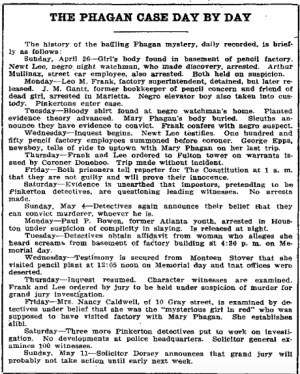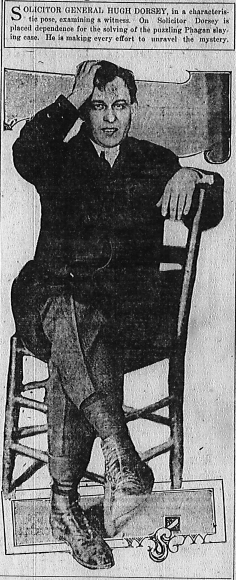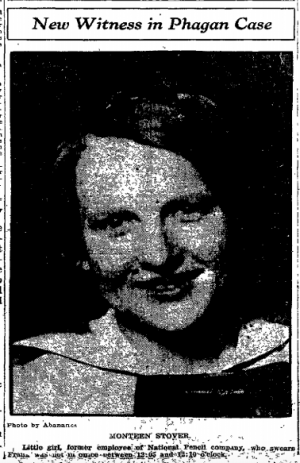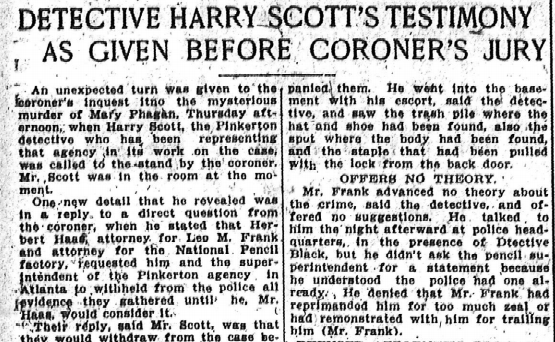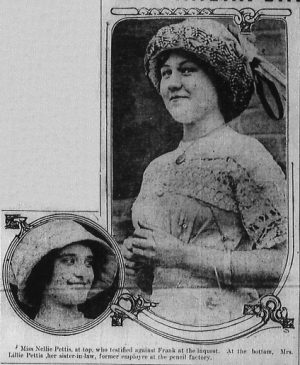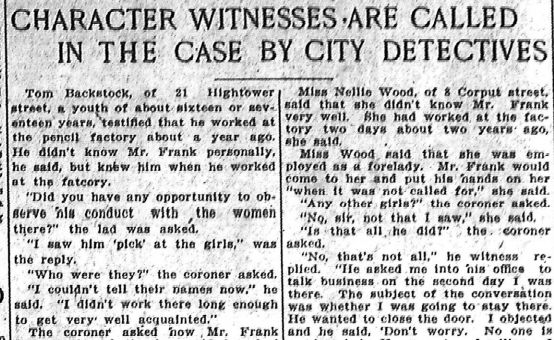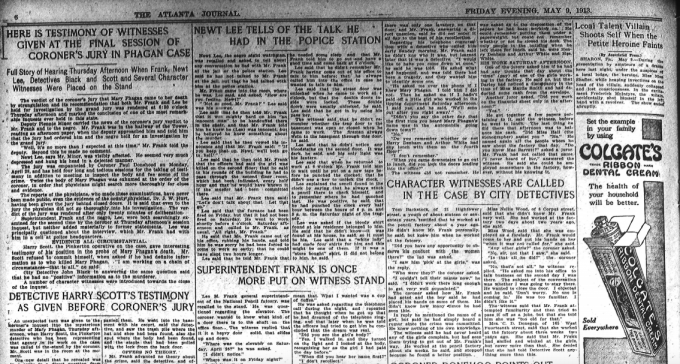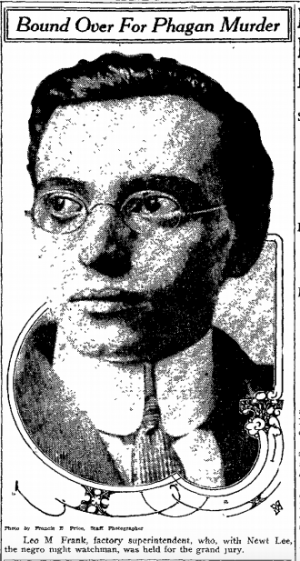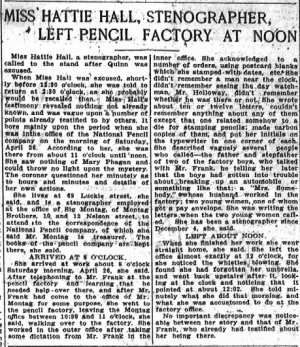 Another in our series of new transcriptions of contemporary articles on the Leo Frank case.
Another in our series of new transcriptions of contemporary articles on the Leo Frank case.
Atlanta Journal
Thursday, May 8th, 1913
Miss Hattie Hall, a stenographer, was called to the stand after Quinn was excused.
When Miss Hall was excused, shortly before 12:30 o’clock, she was told to return at 2:30 o’clock, as she probably would be recalled then. Miss Hall’s testimony revealed nothing not already known, and was vague upon a number of points already testified to by others. It bore mainly upon the period when she was in the office of the National Pencil company on the morning of Saturday, April 26. According to her, she was there from about 11 o’clock until noon. She saw nothing of Mary Phagan and could throw no light upon the mystery. The coroner questioned her minutely as to hours and minutes and details of her own actions.

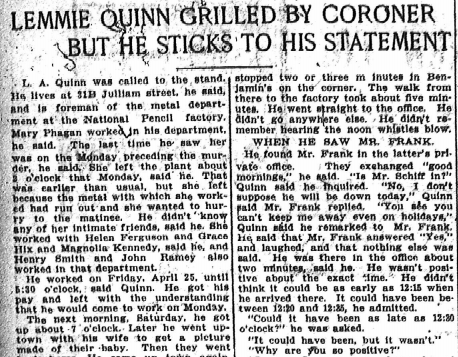
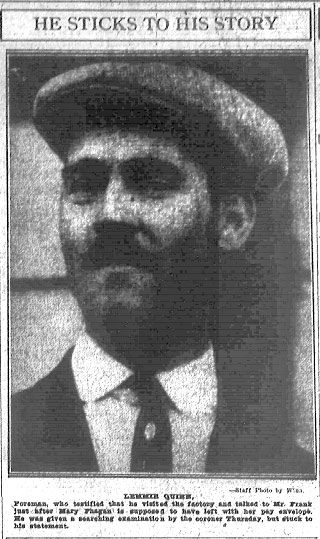
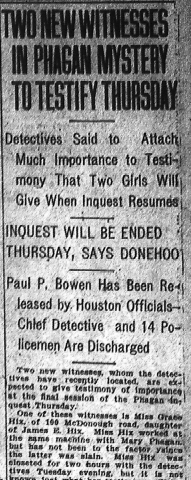

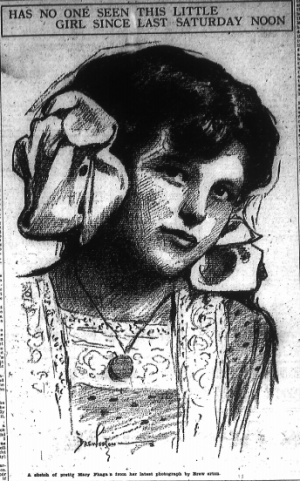
 Another in
Another in  Another in
Another in  Another in
Another in 

